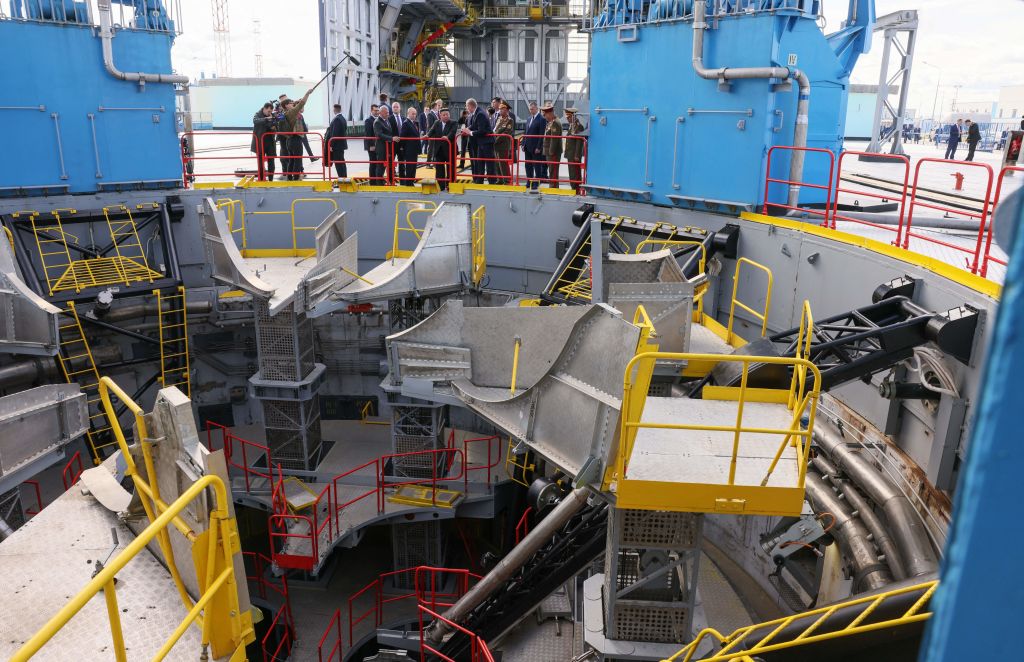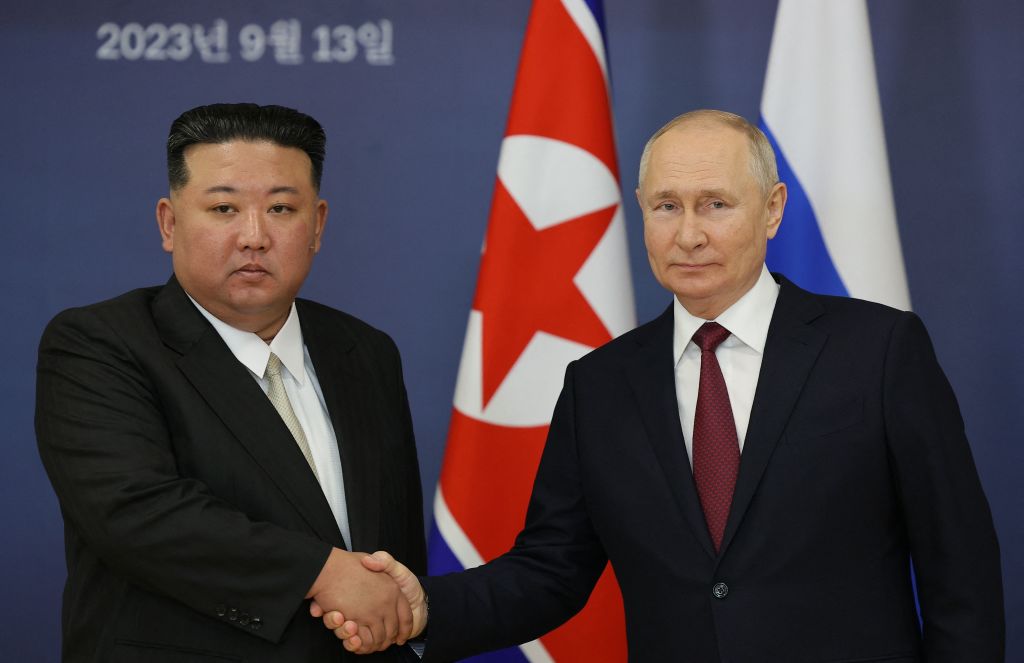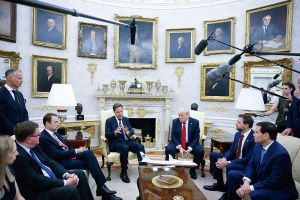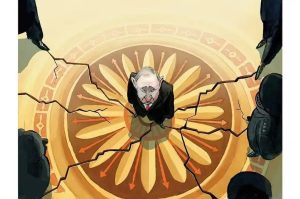If a little tyrant theater is your goal, then rumbling across the border in an armored train decked out like a palace (if your palace was decorated in the 1970s) is hard to beat. As North Korea’s Kim Jong-un and Russia’s Vladimir Putin met at the Vostochny spaceport, the Bond villain vibes were strong — and we might suspect that was the point.
As of writing, we don’t yet know the precise terms of whatever deal has been thrashed out. Even though his factories are running 24/7, Putin clearly wants more munitions for his war in Ukraine. North Korea’s are reportedly of stunningly poor quality, but something is better than nothing, and at least they are built to Russian calibers. Claims that Putin is also angling for North Korean troops are hard to credit, but there might be room for laborers working on reconstruction projects in the occupied territories.
Kim’s shopping list is rather more lengthy and varied. While he clearly doesn’t need to skip a meal, his country is malnourished to the point of periodic starvations, courtesy of mismanagement and the diversion of resources to the military and keeping the elite happy. Beyond grain, he is likely hoping for military technology and help with North Korea’s attempts to break into space. The Russians’ recent track record may be nothing to write home about, but at least they, unlike the North Koreans, have demonstrated the capacity to put a satellite into orbit, and Putin has indicated that this kind of support is on the cards.
The Vostochny cosmodrome was therefore not just a suitable backdrop for their talks, it also conveyed the right vibe of high-tech threat and global reach. After years of an often tense relationship, Moscow and Pyongyang wanted to signal a new closeness. Kim was especially fulsome, thanking Putin for flying to the Russian Far East and praising Russia for its “sacred fight to protect its sovereignty and security against the hegemonic forces.” North Korea, he said, “will always support the decisions of President Putin and the Russian leadership… and we will be together in the fight against imperialism.”
Putin, true to form, was a little less than expansive, but he nonetheless expressed pleasure at Kim’s visit and invoked Moscow’s long friendship with Pyongyang — the USSR was, after all, the first nation to recognize the new state. It was left to his propagandists to talk up the event. On state TV, the meeting was hailed as a “milestone in global politics” and a scholar from the Russian University of Peoples’ Friendship called the two leaders “creators, artists” who “are now going to paint a new landscape of relations in the Far East.”
Yet it is the case that they are playwrights more than painters, because this event has been staged for maximum impact. Russian diplomats in Beijing have apparently been keeping the Chinese — who have their own complex relationship with North Korea — up to date with the negotiations, eager to try and minimize tensions on that front. Indeed, it is possible in the future that Beijing, if it does want to step up its support for Moscow — for, no doubt, a stiff price — might use North Korea to “launder” any munitions it may provide. Nonetheless, for both Putin and Kim, this is also an opportunity to demonstrate that they are not wholly in Xi’s shadow.

More to the point, the audience is the West. Both North Korea and Russia are under sanctions, and realize all too well that their enemies would dearly love to see their regimes fall. When Kim suggested that he and Putin “work on a 100-year plan” for building strong, lasting relations between their countries to achieve “true international justice,” he was signaling for what you could call an “axis of the unloved.”
After all, this is one of the ironies of the sanctions regimes increasingly adopted as the West’s tool of choice in such situations. They undoubtedly do have an effect degrading state capacity and grinding away at target economies. Authoritarian regimes can absorb a great deal of pain though (not least by transferring it to their own subjects) and acquire a perverse room for maneuver. If Russia does sell weapons to North Korea, for example, that would be a breach of UN sanctions. But with Russia secure in its Security Council veto power, and already feeling like a pariah, it may not care.
There is a limit to how far Putin will want to get into bed with Kim. He will probably not want to provide the nuclear submarine and missile technologies that the North Korean undoubtedly has on his shopping list. Likewise, even setting aside the undoubted quality control issues, Pyongyang can do no more than help bridge the shortfalls in Russian ammunition stocks as they try to bring new capacity on line.
Nonetheless, for both men this is not just an opportunity for some pragmatic horse-trading but also a chance to thumb their noses at the West and remind us that the more we isolate them, the fewer constraints they feel.
This article was originally published on The Spectator’s UK website.

























